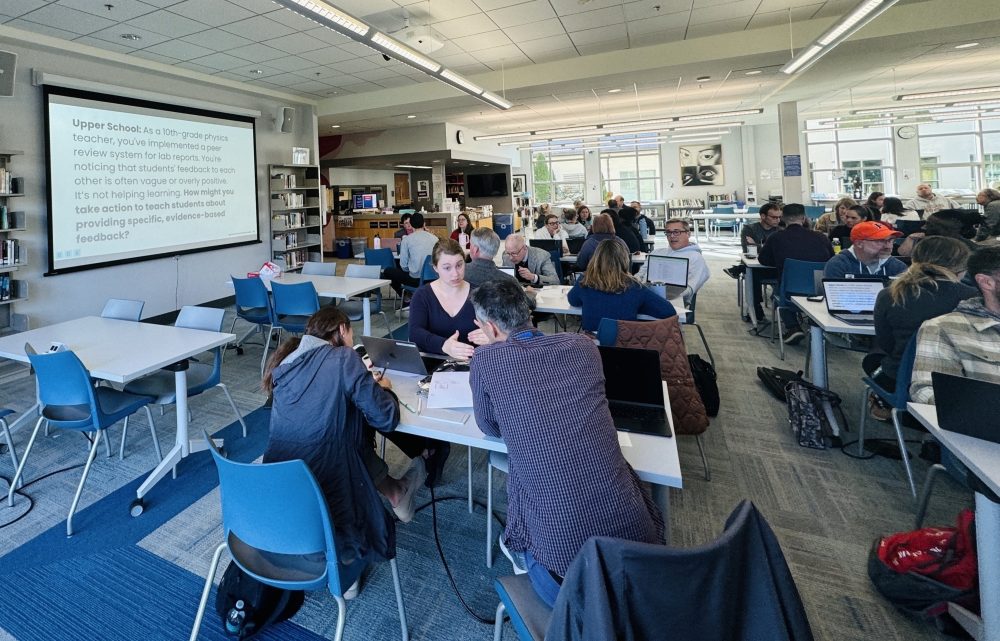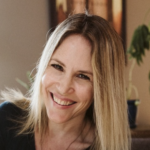Reimagining Professional Learning: Emerging Models for Educator Growth
Professional development has undergone a significant transformation in recent years. Research from the Learning Policy Institute indicates that effective professional development must be content-focused, incorporate active learning, support collaboration, provide coaching, offer feedback and reflection, and be of sustained duration. Yet according to a 2020 study by the RAND Corporation, only 29% of teachers report that professional development is highly relevant to their needs.
Against this backdrop, some schools are exploring innovative approaches to professional learning. Two school leaders—Sarah Beck from The Potomac School and Tye Campbell from Gilman School—share insights on the outstanding ways their faculty teams are growing and how partnerships with Global Online Academy (GOA) have influenced teaching practices at their institutions.
Align Professional Learning with School Priorities
Professional development must be closely aligned with school priorities and culture to be effective. The Potomac School has partnered with GOA to support its educators across all divisions—elementary, middle, and secondary. Through workshops like Educator Practice in the Era of AI and Building Feedback Ecosystems, faculty have engaged in practical, impactful professional development to enhance their instructional practices. Alignment is what Beck, Assistant Head of School for Academics at The Potomac School, values in their professional learning partnership.
"Partnering with GOA for the last two years in particular, has been really the cornerstone of our support for faculty at Potomac," Beck noted. "It's been wonderful to have an outside partner that is willing to be so thoughtful about what are your priorities as a school, what is the common language you are working on, what are your priorities, and then we can shape our expertise and our offerings to make sure they align."
Beck describes the importance of creating coherence: "It really does feel like an extension of our programming. Teachers feel like it is built in and connected to the work that we're already doing. It doesn't just [feel like] somebody dropping in and pulling out and having it be disconnected."
This approach reflects what education researcher Thomas Guskey describes as "beginning with the end in mind"—starting professional learning design with clear goals for student outcomes.
Complement Internal Expertise with External Perspectives
While schools often have significant internal expertise, external perspectives can bring fresh insights and specialized knowledge. Gilman School has partnered with GOA to equip its educators with the skills to navigate the evolving landscape of teaching and learning. Through workshops like Educator Practice in the Era of AI and collaboration on competency-based learning implementation, faculty have engaged in synchronous professional development. Additionally, many teachers have expanded their expertise through GOA’s Online Learning Design Institute and asynchronous learning platform. Campbell, Director of Strategic Information and Innovation at Gilman School, explains: "Having GOA come in has been really good because it's allowed us to bring in the expert. We've done a lot of internal professional development which is helpful, but sometimes it's really great to get an outside voice and to bring in folks who are really focused on this work."
The integration of external expertise with existing school language and priorities has been particularly valuable: "I knew that GOA would be able to come in and add something meaningful to the conversation," Beck said. "In August we generally kick off the school year with the focus and create some common language, and then in both instances, we shared those initial slide presentations with the GOA team, and they then incorporated some of our slides and language into their program... That was just phenomenal, because it felt like there was that through line, that connection."
Shift Teaching Practice
Effective professional learning should ultimately lead to changes in teaching practice. Research by the National Center for Education Statistics shows that teachers are more likely to change their practice when they receive ongoing support and practical resources.
Beck highlights specific shifts in teaching practice: "I know that there's been a real shift towards using and thinking about rubrics that has come out of GOA's sessions in the fall... The rubric resources that have been shared by GOA are ones that I know are being used in the classroom."
She also notes changes in attitudes toward technological innovation: "We started off the year with a lot of hesitation, fear, nervousness, resistance, and overwhelm around AI. And we are just in such a different place this year, and I credit that in large part due to GOA facilitating opportunities for faculty and staff to just play around with it and understand it as a tool, without any sort of directive of ‘you have to use it in this way, shape, or form’."
Campbell similarly observes: "We have teachers obviously using more AI now and thinking about the ways in which we do that. We have teachers that are exploring competency-based learning. They're exploring how to use rubrics... how to develop what mastery looks like in their classroom and in their courses."
He notes how early adopters influence their colleagues: "As those people who are kind of your first foray into those new areas learn, they experience, they try different things. They can then share those with the other faculty who are kind of in a more wait-and-see approach."
Balance Expertise with Teacher Agency
A key tension in professional learning is balancing outside expertise with teacher voice and agency. Research by Linda Darling-Hammond suggests that effective professional development respects teachers as professionals and builds on their existing knowledge.
Beck describes this balance: "The presenters are just so smart. They're bright and witty, authentic and knowledgeable. But even while that is happening, those facilitators make a tremendous amount of space in their presentation and workshops for the expertise in the room to take center stage, and that's a hard line to walk."
Campbell emphasizes the focus on improving fundamental teaching skills: "If there's one thing that comes to my mind when it comes to GOA's offerings, it's all about feedback. It's all about making sure that students understand where they are, where their strengths are, where their opportunities for growth are, and enabling teachers to be better communicators of that is a key strength for us."

Address Time Constraints Through Flexible Models
Time constraints serve as a major barrier to professional development (The OECD Teaching and Learning International Survey). Campbell values the flexibility of having "courses being offered asynchronously so it wasn't a dedicated time—people could do it when it worked best for them—that, I'd say, is one of the biggest success stories when it comes to the PD that we offer."
He further observes: "Schools finding the time to do professional development... We can't just rely on the professional day anymore, because that time is just so valuable, so much more valuable. And it's so much more limited now than it ever has been."
As schools continue to navigate changing educational landscapes, the experiences of The Potomac School and Gilman School suggest several principles for effective professional learning: alignment with school priorities, coherence with existing initiatives, respect for teacher expertise, practical resources that can be immediately implemented, and flexible delivery models.
For more, see:
- Personalized Pathways: How Member Schools Help Students Expand Their Learning Through GOA
- Learning Pathways: A Deeper Learning Experience that Prepares Students for the Future
- Charting Your Path: Students Leverage Learning Pathways to Prepare for A Globally Networked Future
The Extraordinary Together series spotlights stories and outcomes from our member schools, illustrating the impact GOA programs have on students, educators, and schools. Posts in the series highlight the potential of student-centered learning—demonstrating how learners thrive when schools foster curiosity and provide pathways for pursuing passions—and they showcase the tangible ways we partner with schools to drive meaningful change. By sharing these experiences, we seek to illuminate how school membership amplifies our member schools' mission, sparks innovation, and shapes the future of education.
GOA is a nonprofit learning organization that reimagines learning to empower students and educators worldwide. In partnership with our global network of 150 schools, we provide interactive, relationship-driven courses, expert resources, and innovative thinking that help to expand and elevate academic programs. Together, we help students and educators become open to the extraordinary.
Follow us on LinkedIn for the latest learning opportunities and news. Sign up for GOA Insights, our newsletter focused on innovative ideas and best practices for the future of learning. Become a Member School.


